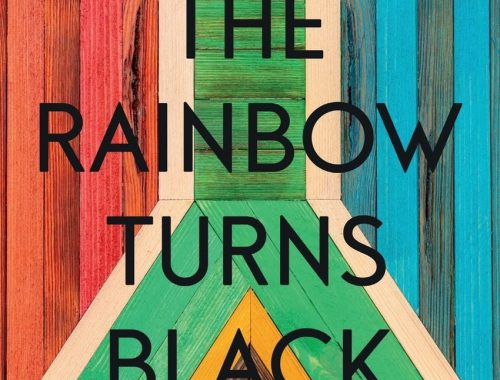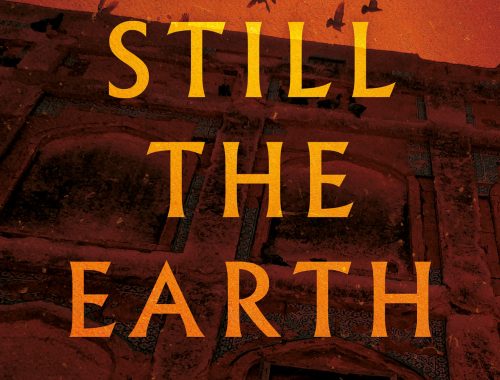Black Spring
Alison Croggon
 Black Spring takes the passionate story of Emily Bronte’s Wuthering Heights and re-imagines it in a fantasy nineteenth-century society set in savage lands sustained by wizardry, where its people live by the vengeance code of vendetta. Like Wuthering Heights, it’s a story within a story, featuring the brooding young Damek, who is swept along by his emotions. The object of his affections is Lina, daughter of the village lord, whose magical powers make her a witch and witches are not tolerated in this brutally patriarchal society. When Lina is sent away and forced to become a servant, Damek promises revenge and, like Heathcliff, spends a lifetime securing and refining it.
Black Spring takes the passionate story of Emily Bronte’s Wuthering Heights and re-imagines it in a fantasy nineteenth-century society set in savage lands sustained by wizardry, where its people live by the vengeance code of vendetta. Like Wuthering Heights, it’s a story within a story, featuring the brooding young Damek, who is swept along by his emotions. The object of his affections is Lina, daughter of the village lord, whose magical powers make her a witch and witches are not tolerated in this brutally patriarchal society. When Lina is sent away and forced to become a servant, Damek promises revenge and, like Heathcliff, spends a lifetime securing and refining it.
When I heard that someone had decided to write a re-imaging of Wuthering Heights I wasn’t sure whether to be impressed or horrified! Bronte’s classic is such an iconic book it is a huge step to undertake to look at it in a fresh light. Cathy and Heathcliff have such strength of personality you wonder if anything could expand on that and their tragic, obsessive love is unique in literature. Having said all that, although I can appreciate Wuthering Heights, it is not one of my favourites so I was ready to see what someone else could do with it.
The story in Black Spring sticks pretty closely to the original, particularly in the beginning when Hammel visits the north to escape illness and a broken love affair (just as Lockwood does). He meets Damek (Heathcliff) an embittered and angry man living in an awful household and treating his young wife abominably. When Hammel returns to his rented house Anna (the maid, aka Nelly) tells him the story of Damek and his lost love Lina (Cathy).
Damek comes to live with Lina when they are both children. Until this point Anna has been Lina’s closest friend despite the barrier caused by Anna being the daughter of a servant and Lina having come from the royal line. Damek and Lina spend as much time as they can together, both have a restless and wild nature and they literally run off and leave everyone else behind whenever they can. As they grow up Lina’s father dies and due to the disfavour with the king his house and land is given to Maseko, an awful man who forces Damek to live as a servant and eventually causes Lina to leave when he assaults her. Damek too leaves and Lina then marries and has a daughter. Then Damek returns and the consequences for everyone are devastating.
The biggest departure from the original is the addition of the fantasy element. Lina is a witch and there are wizards who have a lot of control over the villages and land they live in. Wizards have control, witches are often executed. Then there is Vendetta. This was a really fascinating part of the story, Vendetta is mentioned a few times before it is fully explained. When it is explained you get an idea of the full horror of it and of the power of the wizards who declare it or finish it. Simply put if someone is killed in the village their honour must be avenged. This happens through the eldest male in their family killing the perpetrator of the crime. However this means that the death of the next murdered man must also be avenged and so it goes on, effectively killing off the entire male population of villages as they take vengeance on each other through the family line, cousins and so on are all included. It may sound gruesome, and in many ways it is, but there was a whole ritual behind it of doing things in a precise way at certain times. I would really have liked Alison to spend more time on this idea and in developing it, along with the whole witch and wizard scenario. Anna is affected by this as her father has to become a part of it and she subsequently loses him. Her feelings about the matter and its impact on the family are obviously enormous and yet a lot of it remained unexplored. In the end I was more interested in this than in Damek and Lina’s story (possibly because I roughly knew what would happen to them!) I hope Alison will write another novel and focus more on this idea.
The novel is beautifully written. The prose is easy to read but not at all simplistic. Although much more contemporary it had a flavour of a book written longer ago with some of the language that the characters use. As the book is set in a historical time this adds to the gothic darkness that pervades it. In addition Alison captured the brutal quality of Wuthering Heights really well in this tale. The families and some of the additional characters are really barbaric at times. I felt that in this story more of the brutality came from external influences whereas Cathy and Heathcliff’s obsessive love brings about much of the brutality in the original. In fact I think that this, for me, is where this story was lacking. The relationship between Damek and Lina just didn’t have the impact that the original protagonists had. That is not to say that they don’t have a fiery and strong bond, but the punch seemed to be missing.
Verdict: So, after all that (!), I did enjoy this book and I would recommend it to anyone who likes a bit of a passionate gothic fantasy. However I think it is better not to think about the connection to Wuthering Heights and just read it as a novel in its own right. I think I would have enjoyed it more reading it that way, and if you want to know about Wuthering Heights just read that!
Reviewed by Helen
Publication Date: January 2013
Format: ARC
Pages: 288
Genre: Fantasy, re-imagined classic
Reviewer: Helen
Source: Provided by publisher
Challenge: Debut Author
Ante's Inferno
Thursday's In The Park
You May Also Like

Adventures About to Begin
April 27, 2023
When The Rainbow Turns Black
November 25, 2022

6 Comments
Alison
I think my TBR pile just got a bit bigger.
Caroline
*pleased grin*
Alison
It’s already bigger than me!
Caroline
Tell me about it, I’ve started to double stack my TBR bookcase!
( best not to mention the kindle :S )
C x
Daniela
Yes, my TBR pile is now one book bigger too! It looks great and I love the cover…WH is my favourite book of all time, but far from feeling it’s untouchable, I love the way it inspires modern writers. Can’t wait to read it:) Dani
Caroline
Dani,
Thank you so much for stopping by and commenting, and thank you for your support of the blog on Twitter.
Caroline